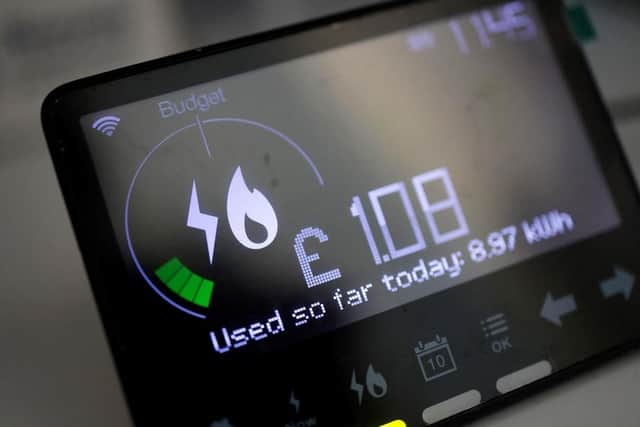All new UK laws for 2023 including increase in council tax, parking and energy bills - what you need to know
and live on Freeview channel 276
After a trying 2022 and the ongoing cost of living crisis still plaguing the nation, many people are hoping the new year might bring some sort of improvement. Unfortunately, as 2023 gets underway, new laws and restrictions set to be introduced, could impact already stretched budgets even further.
Despite protests about tax and energy bill increases, changes are set to come into effect increasing household expenditure. It’s not all doom and gloom, though, as the government will also raise pensions as planned in April in order to keep up with inflation.
Advertisement
Hide AdAdvertisement
Hide AdDrivers will also face new road rules once Scotland becomes the first complete UK nation to prohibit pavement parking, with England anticipated to follow suit. These are just some of the changes being introduced, let’s take a look at more of the new laws coming in 2023.
Council tax increase 2023
Council tax is expected to climb again. The projected increase in 2023 will be more than in previous years rising by 5% in this year compared to 3% in previous years .
According to the OBR, this rise will generate £4.8 billion annually by 2028. However, the TaxPayers’ Alliance has stated the increase will place additional strain on families already struggling to pay their bills. Beginning in April, the personal income tax rate in England, Wales, and Northern Ireland will be frozen. This freeze will remain in effect until 2028.
Pensions and benefits
In response to public pressure, the government has reaffirmed its manifesto promise to maintain the ‘triple lock’ on pensions. This implies that, despite fears resulting from the collapse of the pound during Liz Truss’s tenure as prime minister, pensions will increase by 10.1% in April, as planned.
Advertisement
Hide AdAdvertisement
Hide AdOther benefits for those of working age will also grow at the rate of inflation. However, the housing benefit will remain at its current level.
Energy bills
Energy prices are expected to rise even higher in spring, adding to the agony for UK consumers. The new price cap, which will be set at £3,000, is expected to be implemented in April 2023. The announcement follows Prime Minister Rishi Sunak’s warning that the UK’s issues, such as its skyrocketing energy bills, will not go away.


Chancellor Jeremy Hunt said the Government will continue with its Energy Price Guarantee for a further 12 months from April at a higher level of £3,000 per year for the average household, meaning an average of £500 support for every household.
Online Safety Bill
The Online Safety Bill has been making its way through parliament since former Home Secretary Priti Patel introduced it during her tenure. The bill, which is expected to pass in early 2023, will be introduced to target harmful online content.
Advertisement
Hide AdAdvertisement
Hide AdIt will have far-reaching implications for online businesses and services, such as social networking platforms and ecommerce marketplaces. Organisations failing to protect their users, including from user-generated content, will be scrutinised by a new regulator and may face fines.


It also aims to keep children safe online. This includes restricting access to adult websites and instituting a legal duty of care to safeguard children from challenges like cyberbullying.
Voter ID
Voter ID has been a controversial topic, with some believing it will prevent people without identification from participating in elections. However, beginning in 2023, voters will be required to provide identification in order to vote.
In future elections, voters must bring any valid form of picture ID to the polling station. Photographic driving licences, passports, biometric immigration documents, and some concessionary travel cards are all acceptable forms of identification.
Advertisement
Hide AdAdvertisement
Hide AdPavement parking
Parking is always a source of contention for drivers, road users, and pedestrians alike. However, Scotland will become the first entire UK nation to prohibit pavement parking in 2023.
The regulation, which forbids vehicles from parking on any pavement space, is intended to increase pedestrian access to footpaths, including for families with prams and wheelchair users. It has already been implemented in London, and the rest of England is expected to follow suit in the near future.
